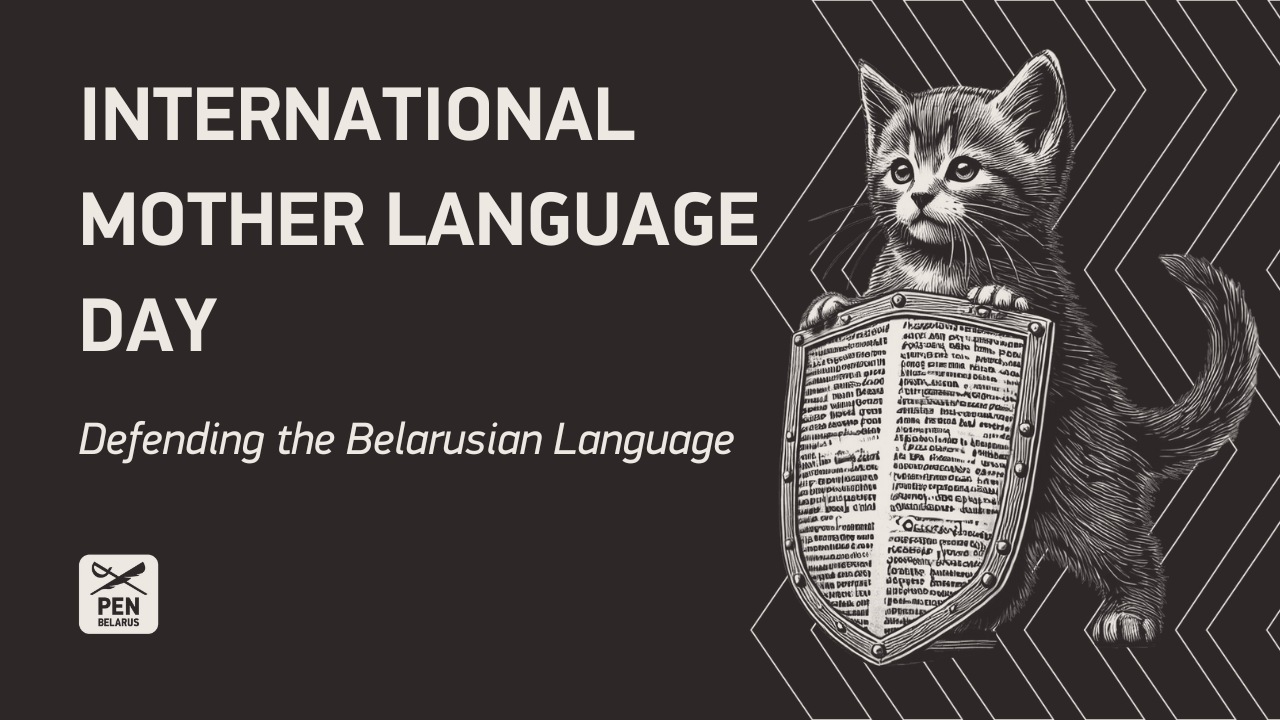
On February 21, the world observes International Mother Language Day. It was proclaimed by the General Conference of UNESCO 25 years ago in memory of the tragic events of 1952, when students in Dhaka (now Bangladesh) fought for the recognition of their mother tongue—Bengali. This day symbolizes the struggle for every person’s right to speak their native language and protect their cultural heritage.
The Belarusian language is classified as potentially vulnerable according to UNESCO, which means that the fight for linguistic rights for Belarusians is not just a symbolic metaphor but a daily necessity.
What are linguistic rights?
Linguistic rights are fundamental human rights that guarantee the ability to use one’s native language in all spheres of life. They encompass the right to education, access to information, the use of language in court, and communication with government authorities.
These rights are also guaranteed by Article 50 of the Constitution of Belarus. More detailed provisions on the linguistic rights of Belarusian citizens are described in the Law “On Languages in the Republic of Belarus.”
Language is not just a means of communication; it is a significant element of national identity and culture. Protecting linguistic rights helps preserve cultural diversity, ensures equal opportunities for all citizens, and contributes to societal development.
Linguistic rights form the foundation for self-expression, creativity, and the transmission of a rich cultural heritage to future generations. Every time we speak, read, or write in our language, we preserve the unique history, traditions, and worldview that define who we are.
Violations of linguistic rights and language discrimination
According to Article 17 of the Constitution of Belarus, both Belarusian and Russian are recognized as state languages. However, in practice, language discrimination against Belarusian is widespread.
The results of the 2019 census show that the percentage of Belarusians who consider Belarusian their native language has declined from 86% in 1999 to 61% in 2019 (a decrease of 2,093,732 people). The percentage of Belarusians who speak Belarusian at home has dropped from 41% to 28% over the same period (a decrease of 1,098,033 people).
It is crucial to emphasize that the rapid decline in the number of native speakers of the titular nation’s language cannot be considered a natural process. It is undoubtedly a consequence and clear evidence of the state’s consistent policy of forced Russification.
PEN Belarus and the International Union of Belarusian Writers have recorded numerous violations of linguistic rights and cases of language discrimination in their monitoring over recent years.
Violations and discrimination have occurred in the following areas: the education system, theater, music, visual arts, and museums, literature and libraries, heritage preservation and historical memory, the film industry, media, the urban environment, government institutions.
Currently, language discrimination in Belarus is not decreasing. Amidst a large-scale socio-political crisis, rising national consciousness, and Belarusians’ search for their own identity, the confrontation between the state and Belarusian language speakers has intensified since 2020. The Belarusian language remains under threat of extinction, and its speakers face serious obstacles and even danger.
We have gathered several materials that shed light on the problem of using the Belarusian language. Here, you can find relevant information:
- The Belarusian language in the period of socio-political crisis: signs of linguistic discrimination
This material provides a detailed analysis of the systemic discrimination against the Belarusian language, highlighting legislative changes, statistical data, and everyday manifestations of linguistic oppression in Belarus. It also examines the impact of state policies on education, culture, media, and public life, demonstrating how forced Russification continues to threaten the survival of the Belarusian language. - Russification in the cultural sphere of Belarus 2022-2023
This report analyzes the growing influence of Russian culture in Belarus from 2022 to 2023, highlighting how increasing cooperation with Russia in theater, music, museums, and education accelerates the country’s Russification. It outlines state-led initiatives, the suppression of Belarusian cultural identity, and the broader geopolitical implications of cultural absorption by Russia. - Overviews of violations of linguistic rights in Belarus
On this page, you can find records of specific violations of linguistic rights documented by our partners, the International Union of Belarusian Writers. It includes examples of individual cases of language rights violations.
What does PEN Belarus do?
PEN Belarus continues to protect imprisoned writers and other creatives, as well as linguistic, cultural, and civil rights and freedoms, humanistic values, and identity. It creates and provides space for the development of Belarusian culture, creativity, and intercultural dialogue.
Here are some examples of our activities that support the protection of the Belarusian language:
- Literary awards for the best books in Belarusian language
- Translation workshops
- The “Audioteka” project
- Monitoring of violations of cultural rights and human rights of cultural figures.
- Participation in literary festivals
- Collaboration with international partners and joint informational campaigns
- Advocacy efforts, such as ensuring the publication of additional books from the Harry Potter series in Belarusian after British copyright holders initially refused to extend the rights
- Support for imprisoned writers and repressed cultural figures
How you can help us?
We call on the international community to stand with us in defending the fundamental right to speak and live in our native language.
Here’s how you can help:
- Raise awareness about the situation of the Belarusian language
- Share any of our materials in your social media
- Support Belarusian cultural and educational initiatives in exile
- Share the informational campaign advocating for Andrzej Poczobut’s rights and freedom
When sharing information about Belarus we kindly ask for tagging https://www.facebook.com/penbelarus.org/ (Facebook), @pen_belarus (Instagram) and @penbelarus (Bluesky).
